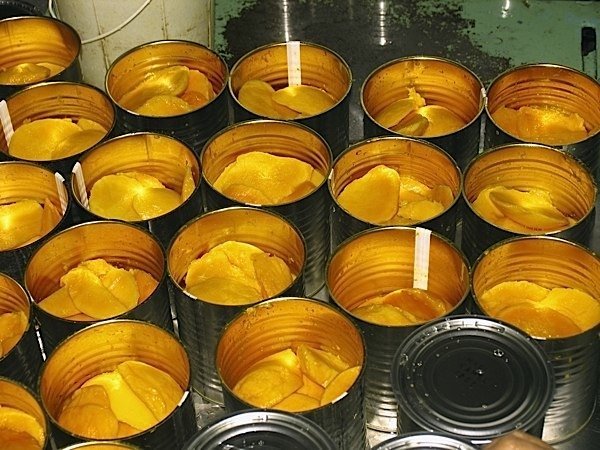
A new report on the presence of Bisphenol A (BPA) in food can linings focuses on the potentially harmful effects the chemical can have on people’s health, particularly on the hormonal system. The report, called Buyer Beware: Toxic BPA and Regrettable Substitutes in the Linings of Canned Food, was prepared by a group of non-profit organizations and public health advocacy groups, one of them, Environmental Defence, in Canada. The report cites evidence that BPA may “contribute to” a host of harmful health effects including breast and prostate cancer, infertility, type-2 diabetes, obesity, asthma and attention deficit disorder.
The report calls “alarming” the results of a product sampling on various canned foods on the market in Canada and the US today. In some cases, all of the products tested were found to have BPA. All Campbell’s soup product cans tested contained BPA-based epoxy, prompting the soup company to announce that it would eliminate BPA from North American cans by mid-2017.
Alternatives being used by food manufacturers aren’t much better, according to the report. They include acrylic and polyester resins, and polyvinyl chloride copolymers (PVC). These are described as “regrettable” choices because of their known carcinogenic properties.
A spokeswoman for Environmental Defence said that the presence of the “hormone-mimicking chemical” BPA in many food cans puts Canadians at risk of serious health problems.
The scientific evidence linking BPA exposure to harm in humans is compelling and growing: More than 300 animal and human studies have linked BPA exposure, often in exquisitely small amounts measured in parts per billion and parts per trillion, to a number of health problems, including breast and prostate cancer, asthma, obesity, behavioral changes including attention deficit disorder, altered development of the brain and immune system, low birth weight and lowered sperm counts.
However the US Food and Drug Association (FDA) is less alarmist about BPA. Is BPA safe? “Yes,” says the FDA. Based on the agency’s “ongoing safety review” of scientific evidence, the available information supports the safety of the compound in currently approved uses in food containers and packaging. People are exposed to “low levels” of BPA because “very small amounts” of the substance “may migrate” from the packaging into the foods contained. “Studies pursued by FDA’s National Centre for Toxicological Research (NCTR) have shown no effects of BPA from low-dose exposure.”
Health Canada also found that current dietary exposure to BPA poses no risk to the general population or to newborns and young children.
As far as the public’s concern over BPA, the FDA says it is carrying out “in-depth studies” to answer any questions and clarify uncertainties about the substance. The FDA has already withdrawn approval for the use of BPA in plastic baby bottles and formula packaging.
People are exposed to low levels of BPA because, like many packaging components, very small amounts of BPA may migrate from the food packaging into foods or beverages. Studies pursued by FDA’s National Center for Toxicological Research (NCTR) have shown no effects of BPA from low-dose exposure.
Food companies find themselves in a hard place. The big companies like Campbell’s and Del Monte have begun switching to non-BPA linings, but the coalition behind the Buyer Beware report says “much more research is needed” to determine how safe the alternatives are. Their best advice for consumers is to avoid canned foods altogether unless the manufacturer fully discloses “the identity and safety” of their linings. Consumers should buy fresh or frozen foods, or foods in glass or Tetra Pak containers, it says.
The North American Metal Packaging Alliance, which represents the food and beverage packaging industry, said in a statement to CTV news that the epoxy linings used in the industry are a “near perfect food protection system.” Further, the packaging group says that according to the FDA, there has not been a single reported case of food-borne illness attributable to the packaging in “close to 40 years,” the equivalent of “trillions and trillions” of canned foods sold. Food-borne illness is not the issue with BPA, of course, but the packagers make a strong point as to the industry’s safety record.
































